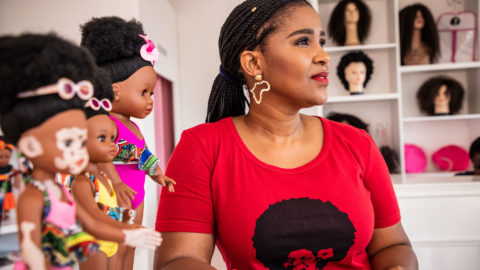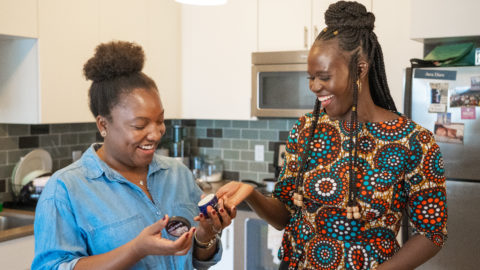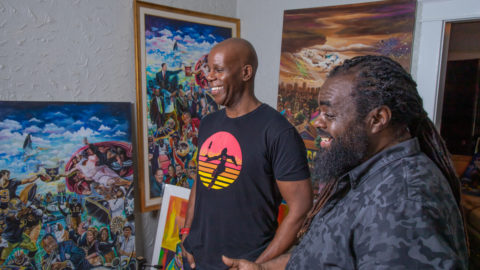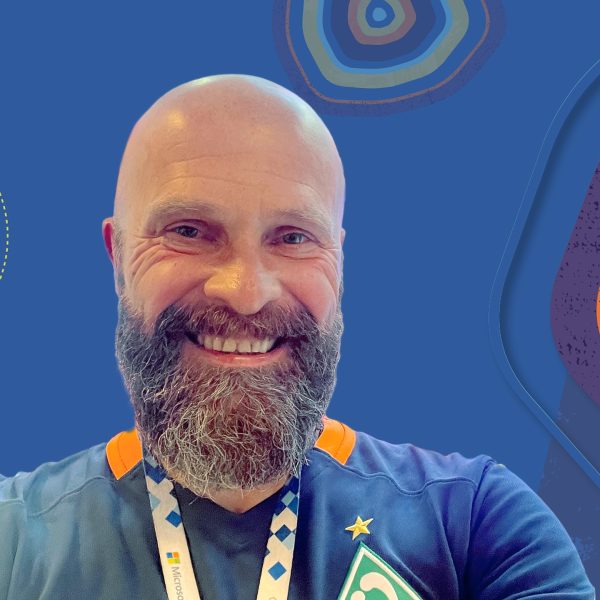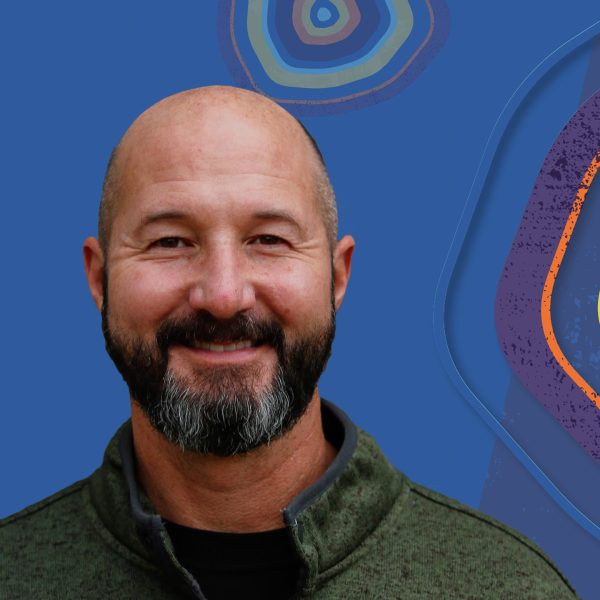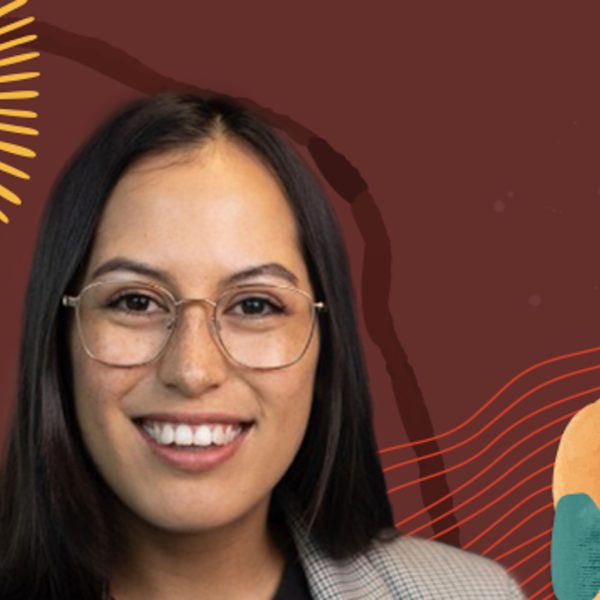
“I was taught that it isn’t important to be perfect on day one.”
Claire Peterson learned to channel the skills that she learned in the military into tech industry must-haves.
Nuclear physics isn’t usually the subject of childhood bedtime stories, unless you’re Claire Peterson. Forget dragons and daring rescues—Peterson’s father, a US Navy nuclear engineer, filled his daughter’s head with a different kind of magic: atoms, fission, and nuclear reactions. Completely engrossed, she imagined the mysteries of physics unfold as she dozed off.
The hunger to understand complex ideas took hold when Peterson was young and never let up. From a young age, she was into tech. In high school, she built her first PC and learned to code. She would follow that passion for technology as far as she could.
Because her dad was in the military, as was her grandfather before him, Peterson decided that she too would go into the military, a decision so natural she almost doesn’t remember making the choice. But there was one small thing that was different: she would be the first woman in her family to do so.
After high school, she attended the United States Naval Academy in Maryland, majoring in computer science. The school was short on women, and Peterson was often one of the only women in a room. But she decided early to not be intimidated and to apply her dad’s advice.
“Dad always said that it’s not your gender that matters; it’s how hard you work and the results you deliver,” said Peterson.
In 2010, Peterson graduated and faced her first (but not last) test of being thrown into a job without any pertinent experience.
Her father’s message would echo through many difficult times to come, guiding her to reinvent herself when her initial life plan took a sharp turn.
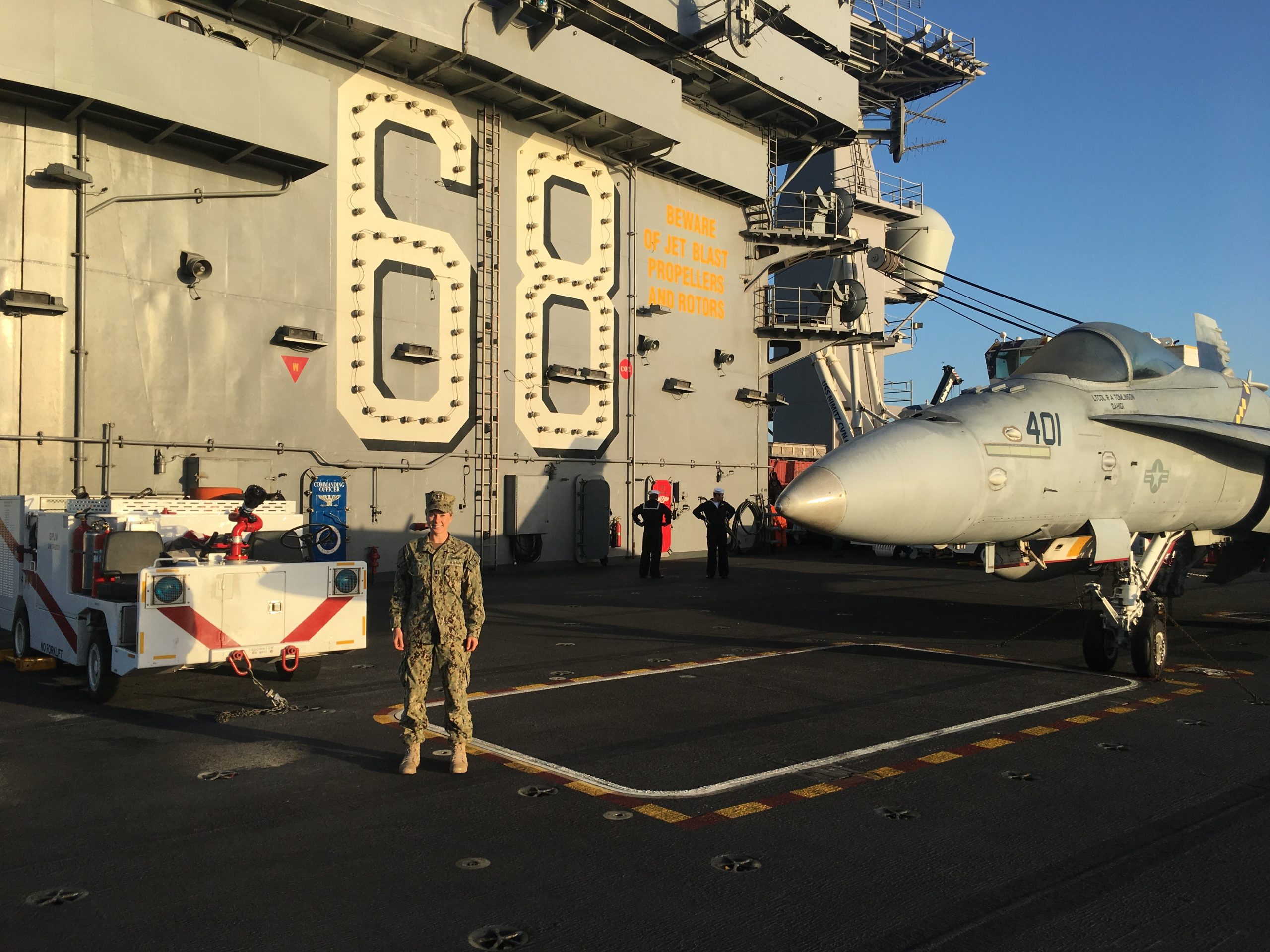
Familiar fire
During her junior officer training on the USS Gettysburg (CG 64) to become a qualified mariner and surface warfare officer, Peterson learned every aspect of safely operating and maneuvering a warship that carried helicopters, Tomahawk missiles, and other lethal weapons.
“Being entrusted with the safe operation of the entire ship while the captain is sleeping or away is a humbling and thrilling responsibility,” Peterson said.
Peterson’s first assignment surprised her: navy nuclear engineer. She was to join the team of engineers who were responsible for planning, designing, operating, and maintaining the government’s nuclear reactors. She was intimidated, unsure if she had enough experience or knowledge to do the job.
As she prepared to immerse herself in physics texts and technical manuals, tragedy struck: her father, her hero, was suddenly killed in a car accident. Shattered and grieving, she doubled down on studying the very physics concepts that her dad had turned into bedtime stories, aching to call him with every new discovery.
Peterson said this was the most difficult time in her life. She’s not even sure how she got through it other than just waking up, cramming, and moving forward every day.
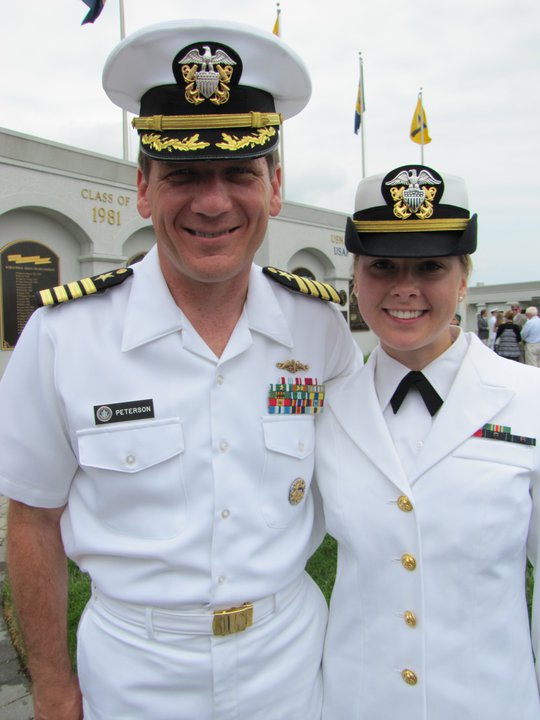
However, in the midst of her fresh grief, Peterson knew that the navy must have believed in her ability and intelligence. Buoyed by its confidence and her own curious mind, she aimed to be the best nuclear engineer that she could be.
“I was taught that it isn’t important to be perfect on day one,” she said.
The long hours required for her role provided the necessary momentum to get Peterson back on her feet. Plus, there was no room for error. Within three months, she realized that she knew what she was doing and that she had gained not only expertise but also the acceptance and respect of fellow engineers.
Every two to three years, military officers change assignments, and before she knew it, it was time for reassignment. In 2015, her second assignment threw her even more than the first had. Peterson was to become a naval gunfire instructor, teaching navy, marine, and special forces units how to employ a ship’s weapon system in ship-to-shore bombardment.
Dad always said that it’s not your gender that matters, it’s how hard you work and the results you deliver.
The specifics of this role required complex communication and detailed integration between friendly forces on the ground, on ships, and on aircraft all employing their weapons systems in the same three-dimensional battle space with perfect timing. Peterson had to master not only how to control this well-orchestrated symphony but also how to teach it to others.
There she was again, thrown into what was now becoming familiar fire—being asked to do something that she wondered if she was prepared to do. Peterson not only had to learn a new subject; the 25-year-old had to endure a less-than-warm reception from her new counterparts, who had met her with skepticism due to her unconventional background. They weren’t convinced that she deserved to be there.
“When I arrived, the marines looked at me like, ‘what are you doing here? Why would they send us a nuclear engineer?’” She couldn’t blame them, as she was asking herself the same question. Why had she been chosen for this job? Maybe her superiors knew something that she didn’t.
Even though this was unfamiliar territory, she knew that she had the technical and tactical ability to become an expert at her new craft. That first day, she got to work.
That night, wounded by the frosty welcome, Peterson searched her soul. Sure, she had faced new and scary situations before, but this felt especially hard. She desperately craved her dad’s words of wisdom.
Then she heard a familiar voice: “You have to make a choice. You can give up right now, or you can pick yourself up like you’ve always done.”

“I told myself it was okay to not be perfect,” she recalled. “That I could trust my ability to learn fast and would do my best to defy everyone’s expectations.” She would show the marines just how tough she was.
She cracked open the textbooks and stayed up that night and many nights after, drilling the new information into her head until it was second nature. Slowly, she began to recover her confidence and make a name for herself.
Two years later, Peterson ranked as the top instructor in her division, considered one of the foremost subject matter experts in the field.
She had succeeded where others—and even she herself—had thought she couldn’t. But then it was time to face another terrifying transition: her required service time was coming to an end. She would have to leave the military and try to conquer the challenge of living as a veteran civilian.
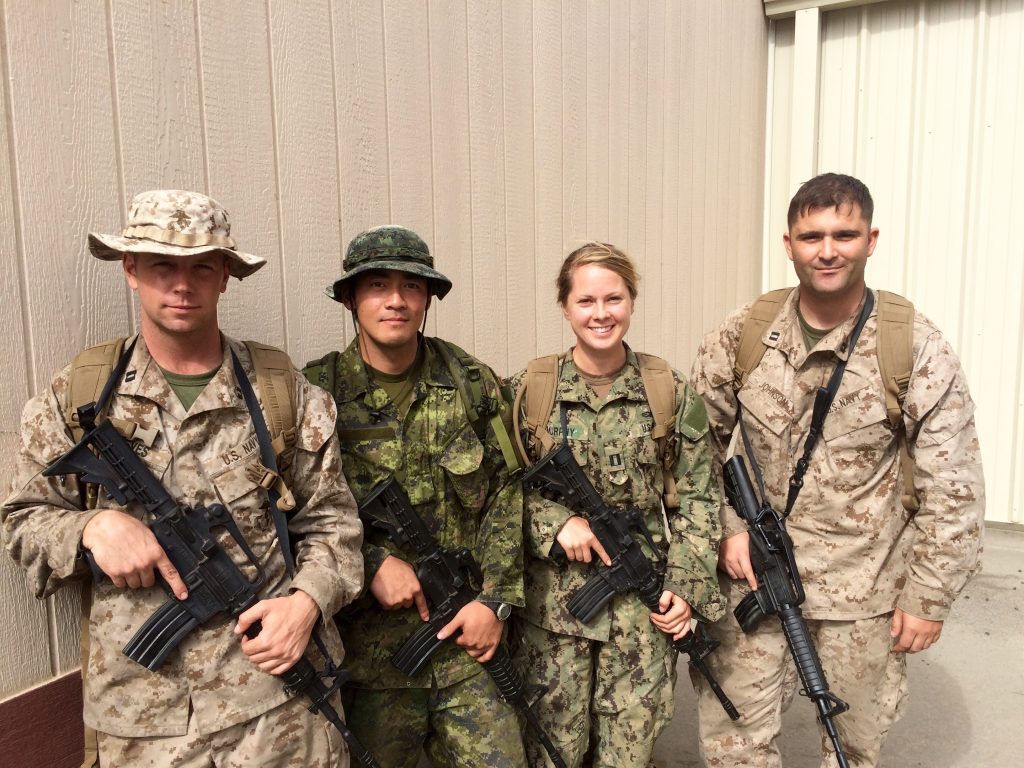
Permission granted
“It’s really hard for veterans to transition,” Peterson explained. And she admits, after having been out for only a few months at the time of this interview, she is still intimidated at times.
One big hurdle is finding meaningful work again. “You’re so used to the organization knowledge in the military that is makes it challenging to step outside the comfort zone to learn what is available on the outside.
“Too many of us feel like we should just take the first job offer we get, even if we don’t want it.”
Peterson sent out her resume, mainly to tech companies even though she worried that maybe her specialized skills wouldn’t translate to a job in technology. It had been eight years since she’d earned her computer science degree. But she found out that tech companies were eager to hire people like her who had technical acumen and the ability to learn fast.
She confesses now that she’d never considered Microsoft, the company where she’d eventually accept a job, even though she’d always loved technology.
“I didn’t initially see Microsoft as an exciting place for innovation. I was wrong. And I want to change that perception for veterans.”

“A lot of people don’t land their dream job,” she admitted. “But I’m lucky, because I did.”
“To succeed as a military officer, project, program, and resource management must become second nature; we just use different terms.”
Peterson decided on Microsoft in part because she sensed something different from the other companies that she was working with. Something familiar.
“I got this sense that Microsoft employees care—yes, about the work—but more about the mission. They care about taking care of their people and creating an environment where everyone can succeed,” Peterson said. “You understand that you are nothing without your team.
“I never felt like I had to change any aspect of myself in order to fit in here,” she said.
Microsoft employees care—yes, about the work—but more about the mission. They care about taking care of their people and creating an environment where everyone can succeed. You understand that you are nothing without your team.
Once again, she is determined to master her craft. She encourages anyone at a crossroads or who feels like an underdog not to put limits on themselves.
“There has to be that passion within you that just drives you to do whatever it takes to go outside the box,” she said. “Volunteer for extra opportunities, read every single book you can get your hands on, and ask a lot of questions.”
Just before Peterson’s father passed away, she was upset with him. They’d been in a rough patch ever since her parents’ divorce a few years earlier. He was due to fly out for her birthday, and they were going to smooth things over. But then he was gone. She feels the pain of this loss every day, not just of her father, but at losing her chance to reconcile. But she knows that he’d be proud of her.
“I’ve learned to seize the moment and take advantage of opportunities because you don’t know what the future holds.”
Learn more about Microsoft’s commitment to support the military community.



